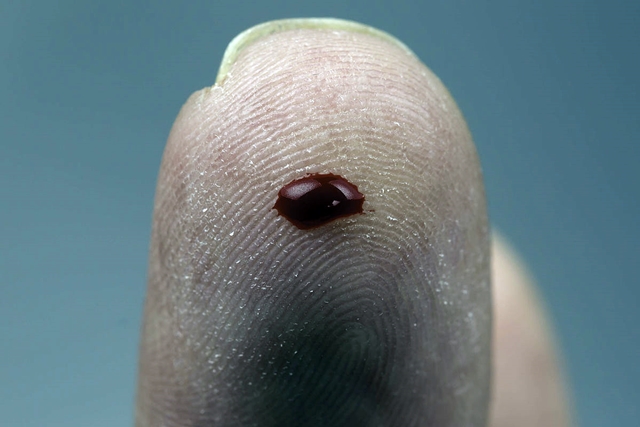22 May 2018. Participants in a clinical trial testing a one-time genetic therapy to treat a rare form of hemophilia sharply reduced their bleeding incidents after a year, with few adverse effects, none considered serious. Results of the trial, sponsored by Spark Therapeutics in Philadelphia, are scheduled to be reported today at a meeting of the World Federation of Hemophilia in Glasgow, Scotland.
Spark Therapeutics is a developer of gene therapies to treat inherited diseases, including hemophilia-B, a disorder where the blood does not coagulate, due to a missing protein that mixes with blood platelets. About 8 in 10 people with hemophilia have type A of the disease, where the protein clotting factor 8 is missing. In type B, clotting factor 9 is missing. Factor 9 is made in the liver, and circulates dormant in the blood stream until a blood vessel is damaged, when it is activated by other proteins that set in motion the processes to coagulate into a clot.
The Spark Therapeutics technology is based on research conducted at Children’s Hospital of Philadelphia, a teaching hospital of University of Pennsylvania. Healthy genes are transferred into patients to replace damaged or mutated genes with engineered adeno-associated viruses, benign microbes designed to deliver genetic material, in this case to the liver, where factor 9 is produced. Among Spark’s founders is Katherine High, a hematologist at Children’s Hospital and UPenn who pioneered adeno-associated virus delivery of gene therapies, and is now president of the company.
The clinical trial is an early- and intermediate-stage study assessing the gene therapy’s safety, but also changes in activity levels of factor 9 in participants’ blood. The trial recruited 15 individuals with hemophilia-B at several sites in the U.S., Canada, and Australia. Participants were given a single gene-therapy treatment, code-named SPK-9001, then followed-up at 12 weeks and tracked for 1 year overall. All participants in the study were given the gene therapies; there was no placebo or comparison group.
None of the gene therapy recipients reported serious adverse effects, including blood clotting events, during that period. Two of the participants, however, were found to have elevated enzyme levels in their livers after 12 weeks, and were treated with corticosteroids. At the 12-week checkpoint, the other 13 participants reached stable levels of factor 9 in their blood of more than 12 percent, which continued over the year they were monitored. For 10 of the participants receiving the original SPK-9001 formulation, factor 9 rates ranged from 14 to 77 percent. Another 3 recipients of an enhanced version of SPK-9001 reported factor 9 rates of 38 to 55 percent.
The company also reported on other efficacy measures not originally specified for the trial. All 15 recipients found they could discontinue their supplemental infusions of factor 9 concentrates. In addition, annualized rates of bleeding incidents or supplemental infusions dropped to less than 1 percent each.
Spark is developing SPK-9001 with drug maker Pfizer. As reported by Science & Enterprise in December 2014, Spark is licensing SPK-9001 to Pfizer in a deal that could bring Spark as much $280 million. Under the agreement, Pfizer is responsible for late-stage clinical trials of SPK-9001, and that transition is expected to complete this summer.
More from Science & Enterprise:
- Genetic Repair Company Starts-Up, Gains $87 Million
- Crispr Deployed to Correct Inherited Vision Disorder
- Gene Therapy Biotech Acquired in $8.7 Billion Deal
- Blood Disorder Drug Maker Acquired in $11.6B Deal
- Sangamo, Pfizer Partner on ALS Gene Therapy
Disclosure: The author owns shares in Pfizer
* * *


 RSS - Posts
RSS - Posts
You must be logged in to post a comment.